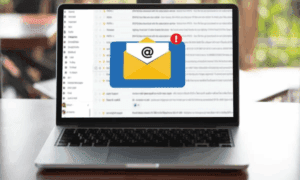In today’s interconnected world, where a significant portion of our personal and professional lives revolves around digital communication, safeguarding our online accounts is more crucial than ever. Among these accounts, email holds a central position, serving as a gateway to various online services and containing a treasure trove of sensitive information. One of the most basic yet often overlooked measures for securing our email accounts is the use of strong passwords. In this article, we’ll explore why strong passwords are essential for safeguarding your email accounts and how you can create and manage them effectively.
Understanding the Risks:
Before delving into the importance of strong passwords, it’s essential to understand the risks associated with weak or compromised passwords. Weak passwords are like an open invitation to cybercriminals, making it easier for them to gain unauthorized access to your email account. Once inside, hackers can wreak havoc by stealing sensitive information, sending spam or phishing emails to your contacts, or even locking you out of your own account. The consequences of a breached email account can be far-reaching and devastating, ranging from financial loss to reputational damage.
The Anatomy of a Strong Password:
A strong password acts as a robust barrier against unauthorized access, significantly reducing the likelihood of a successful cyber attack. But what exactly makes a password strong? Here are some key characteristics:
Length:
A strong password should be at least 12 characters long. The longer the password, the harder it is for attackers to crack using brute-force methods.
Complexity:
A strong password should contain a combination of uppercase and lowercase letters, numbers, and special characters. Avoid using easily guessable patterns or dictionary words.
Unpredictability:
Avoid using personal information such as your name, birthdate, or pet’s name in your password. Instead, opt for random combinations of characters that are difficult to guess.
The Role of Password Managers:
Creating and remembering strong, unique passwords for each of your online accounts can be challenging. This is where password managers come in handy. Password managers are tools that securely store and manage your passwords, allowing you to generate complex passwords for each account without the need to memorize them. These tools encrypt your password database with a master password, ensuring that only you can access your stored passwords.
Best Practices for Password Management:
In addition to using a password manager, here are some best practices for effective password management:
Use Two-Factor Authentication (2FA):
Enable two-factor authentication wherever possible to add an extra layer of security to your accounts. This typically involves receiving a one-time code via SMS or a mobile app in addition to entering your password.
Regularly Update Your Passwords:
Make it a habit to update your passwords regularly, ideally every three to six months. This helps mitigate the risk of your passwords being compromised due to data breaches or other security incidents.
Beware of Phishing Attacks:
Be cautious of phishing emails that attempt to trick you into revealing your login credentials or other sensitive information. Always verify the authenticity of emails before clicking on any links or providing any personal information.
Educate Yourself:
Stay informed about the latest trends and techniques used by cybercriminals to steal passwords and compromise accounts. Educate yourself about common security threats and how to protect yourself against them.
Conclusion:
The importance of strong passwords in safeguarding your email accounts cannot be overstated. By following best practices for password management and using tools such as password managers and two-factor authentication, you can significantly reduce the risk of your email account being compromised. Remember, investing time and effort into creating and managing strong passwords is an investment in the security of your digital identity and personal information.



































